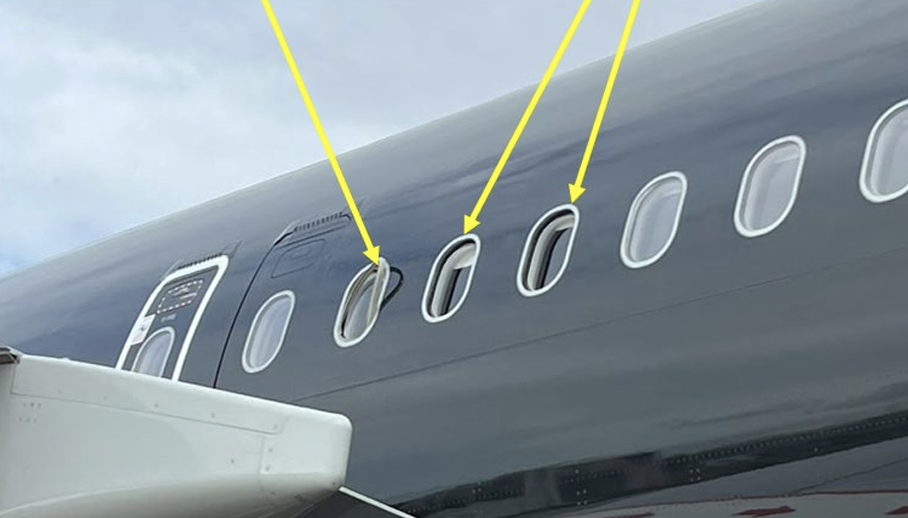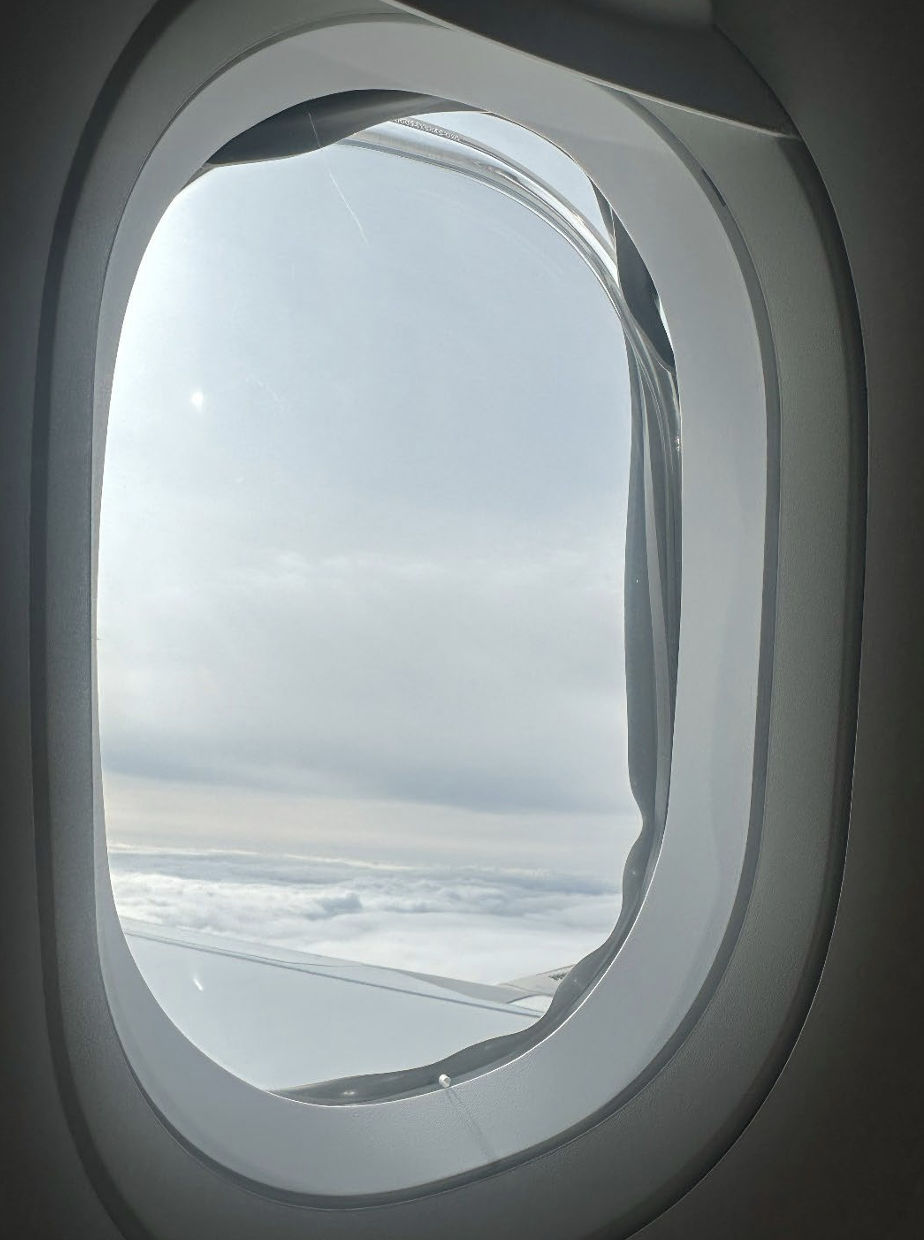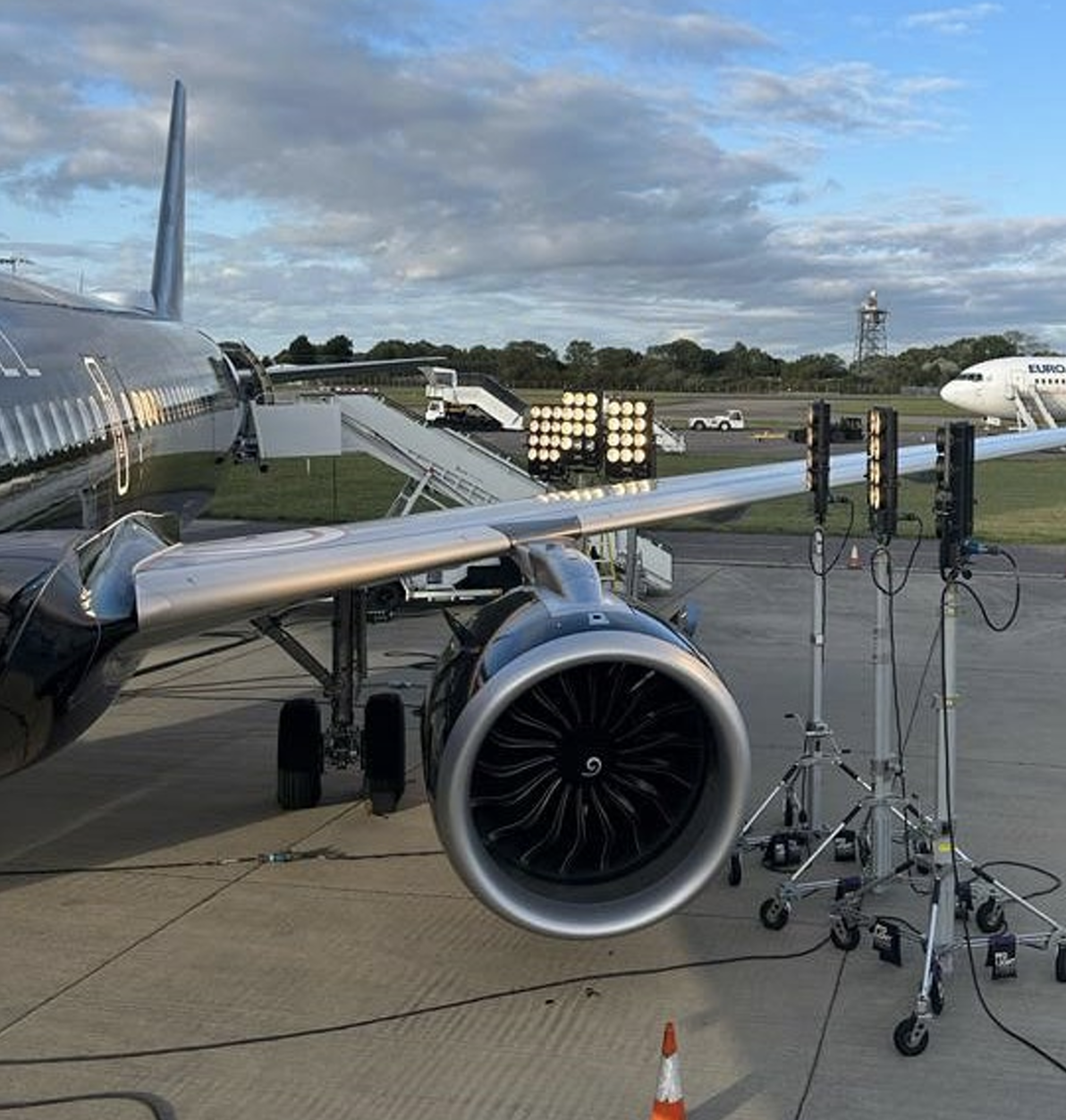A plane that took off from London Stansted Airport in the U.K. was forced to turn around after only half an hour in the air after a crew member noticed one of the cabin windows was damaged.

When the plane landed back at Stansted, the crew found that two of the plane’s window panes were completely missing and two others were dislodged, according to an incident report published late last week by the U.K.’s Air Accidents Investigation Branch. A day before the flight, the aircraft had been used as a film set.
The incident occurred on Oct. 4, when the Airbus A321 plane was set to start a multi-day charter. The first leg was a flight to Orlando International Airport, with 11 crew members and nine passengers on board, “who were all employees of the tour operator or aircraft operating company.”
Shortly after takeoff, several passengers recalled that “the aircraft cabin seemed noisier and colder than they were used to.”
As the plane climbed to 10,000 feet, and the seatbelt sign was switched off, one of the crew members went to investigate the source of the noise.
His attention was drawn to a window on the rear left side of the plane and he noticed “that the window seal was flapping in the airflow and the windowpane appeared to have slipped down,” the incident report reads.
“He described the cabin noise as ‘loud enough to damage your hearing,'” the report adds.
The crew member notified the pilots, who had noticed “no abnormal indications on the flight deck.” The plane’s pressurization system was operating normally throughout the flight.
The flight’s engineer and third pilot investigated the damaged window and determined the aircraft should return to Stanstead Airport. At an elevation of about 14,000 feet, the plane turned around and was able to land without further incident. The total flight time was 36 minutes.

Get daily National news
After landing, the crew inspected the aircraft and found that it wasn’t just one window that was damaged — it was multiple.
A plane window assembly consists of an inner and outer window pane, as well as a rubber seal to hold it all together. Two window assemblies were completely missing from the plane, according to the incident report.
The Independent reports that the only object left filling the space was the scratch pane, a cosmetic piece of plastic that stops passengers from touching the window panes.
On a third window, the inner pane and seal was dislodged. On a fourth window, the outer pane was found bulging out.
“Visual examination of the damaged windowpanes revealed that they were deformed and shrunk,” the report states.
A day before the flight, the plane had been used for a filming event — during which time high-powered lights were shone on the windows for hours.
“The windows appear to have sustained thermal damage and distortion because of elevated temperatures while illuminated for approximately four to five and a half hours during filming activity the day before the flight,” the report reads.
The aircraft crew did not spot this damage before taking off that day.
“Work is ongoing with the aircraft manufacturer and operator to fully understand the properties of the lights used and how this risk can be managed in future,” the Air Accidents Investigation Branch states.













Comments